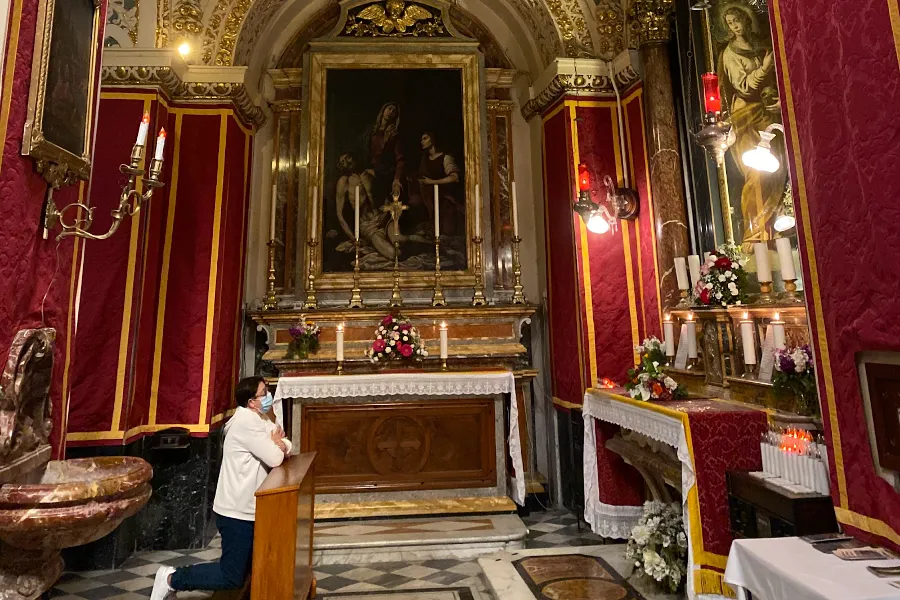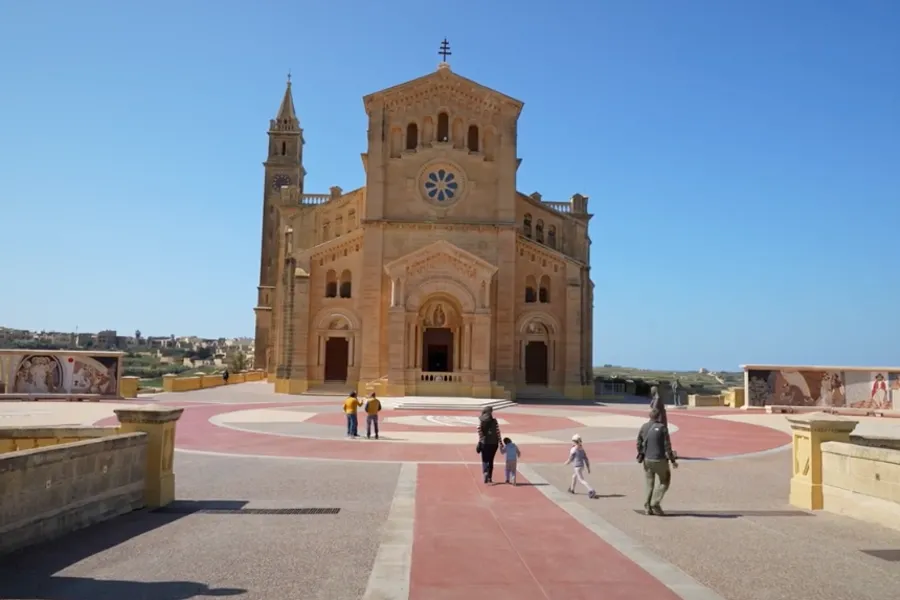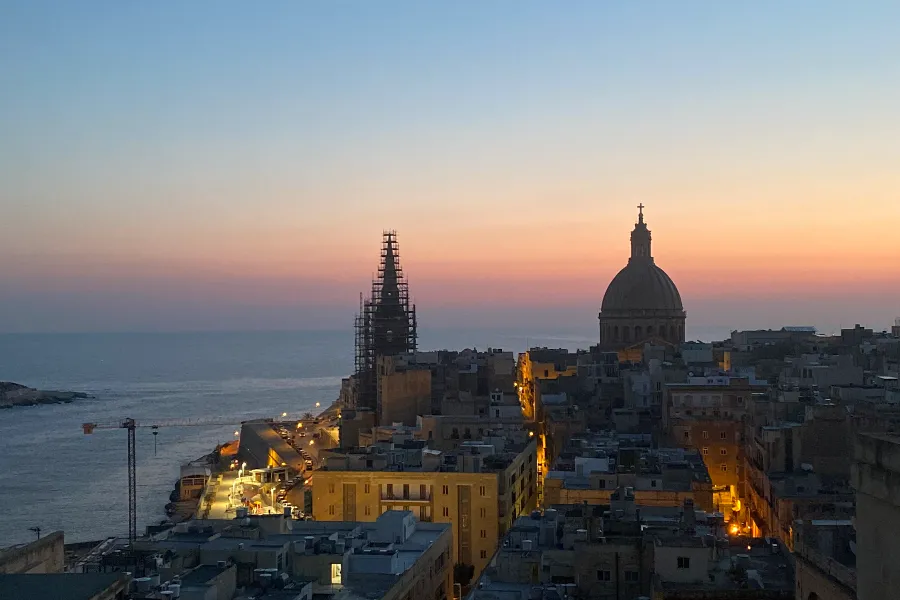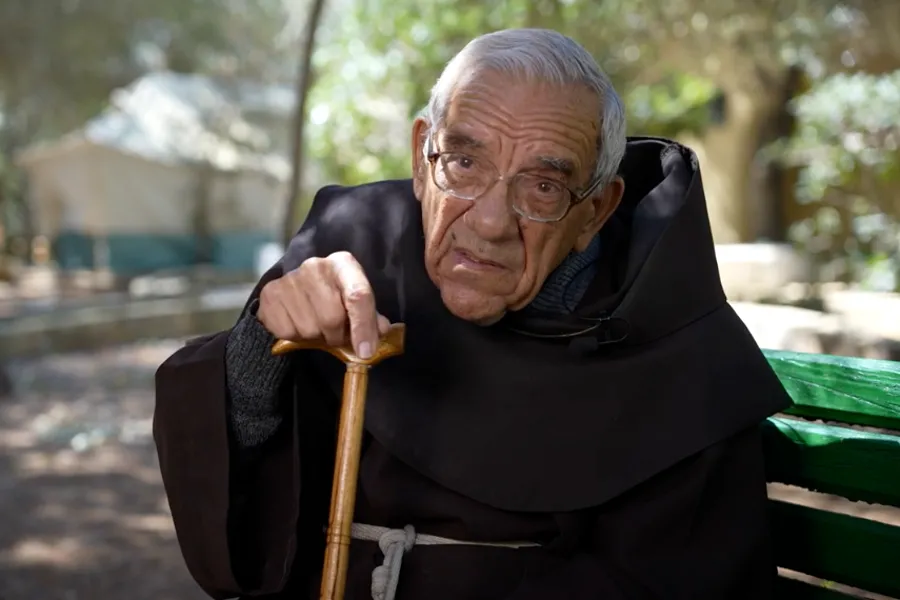Facing Declining Mass Attendance, Malta’s Catholics Hope Papal Visit Will Revitalize the Faith
Pope Francis’ visit comes just before the first Holy Week in two years in which Catholic churches will be open to the public for liturgies.

The small Mediterranean island nation of Malta traces its Catholic roots back nearly 2,000 years. But with recent declines in church attendance, local Catholic leaders are hoping that Pope Francis’ visit this weekend will help to reinvigorate its living faith.
More than 85% of Malta’s population are baptized Catholics, according to statistics released by the Vatican on March 29. Yet weekly Mass attendance in the traditionally Catholic country has steadily declined in the past 50 years.
According to Father Alan Joseph Adami, a Dominican priest from Malta, his home country has experienced significant social and political changes in the past decade that reveal how the Catholic Church’s place in society has changed.
“Since the last visit of a pope in 2010, by Pope Benedict, the island has changed a lot, drastically really,” Adami said in an interview with CNA on March 29.
“There have been several new secular laws that have been introduced and this introduced a wedge between those values that are held by society collectively, the majority, and views of the Church and its values.”
Malta’s government legalized no-fault divorce in 2011, same-sex marriage in 2017, and embryo freezing in 2018.
And while the Maltese government remains the only country in the European Union to fully prohibit abortion, the recently reelected Labour government has pledged to start a national discussion on the legalization of euthanasia.
Adami explained that in the past, the Catholic Church in Malta somewhat took for granted that the Maltese people shared its values concerning the family, life, and human dignity.
“In the Maltese context, we’ve never had a strict separation between state and Church, like you find in France or Italy,” Adami said.
But within just a decade, Maltese society has changed very rapidly.
“The Church has to find a new way to live and to proclaim the Gospel in this new context,” the priest said.
“The island suffers from huge indifference towards the faith that has become so identical with culture that it is no longer discernible in the fruits that it produces,” he added.
“It's very hard to see what are the fruits of Christian living in Malta in 2022 because it becomes so mixed with cultural activities.”
This is a new phase in Malta’s long Catholic history, which has apostolic roots.

The Bible records how St. Paul was shipwrecked on the island of Malta for three months around 60 A.D. in the Acts of the Apostles.
Pope Francis has taken a line from the Book of Acts for the theme of his April 2-3 trip to the Republic of Malta: “They showed us with unusual kindness” (Acts 28:2).
The pope plans to visit the Grotto of St. Paul in Rabat to pray on the morning of April 3. According to tradition, the grotto is where Paul the Apostle lived and preached during his three-month stay on the island of Malta in 60 A.D.
Father Adami explained that Malta’s Christian heritage is even reflected in its language, Maltese, which is a Semitic language that linguistically preserves ancient Christian Semitic words that were lost elsewhere in the Arabic speaking world.
“During the Arab conquest of the island, some would say that Christianity was eradicated, effaced from the island. However, certain Christian Arabic names that survive even to this day attest to some sort of continuation of Christianity on the island,” Adami said.
Malta has been conquered by the Phoenicians, Greeks, Carthaginians, Romans, Byzantines, and Arabs throughout its long history. The Hospitaller Knights of St. John, now often referred to as the Order of Malta, were based in Malta from 1530 until Napoleon invaded in 1798. The island was also under British colonial rule from 1813 to 1964.
Pope Francis is scheduled to visit the Basilica of the National Shrine of the Blessed Virgin of Ta’ Pinu on the Maltese island of Gozo, traveling by catamaran between the Maltese islands on the afternoon of April 2.
The shrine became a popular pilgrimage destination for the Maltese in the late 19th century after a farmhand named Carmela Grima said that she heard the voice of the Virgin Mary, who called her to pray there.
The original chapel of Ta’Pinu, meaning “of Philip,” dates back to the 16th century, but it received so many pilgrims that a larger basilica shrine was constructed at the site from 1920 to 1931.
“We call Gozo ‘the Vatican of Malta,’” Adami said.
“It has churches on every corner, chapels, and priests everywhere. And the Ta’ Pinu sanctuary is one of the major devotions in Malta.”

“I don’t think that there is any Maltese family that visits Gozo and doesn’t go to Ta’Pinu, even unbelievers go there,” he added.
Today, Malta is known for its traditional Holy Week processions, which were canceled for the past two years due to the coronavirus pandemic.
“We spent two Easters now with our churches closed, two years with our tradition suspended, no processions, and that was a huge blow for the Maltese,” Adami said.
Pope Francis’ visit comes just before the first Holy Week in two years in which Catholic churches will be open to the public for liturgies.
“For us, being visited by the pope is something very special. I think that the pope will come to renew us in our faith, to help draw us closer to Jesus, but also to help us to live in peace together, to respect one another, to grow as a Church,” Father Gerald Buhagiar, the rector of the Ta’Pinu basilica, said in an interview with EWTN.

Like on Pope Francis’ other recent trips to Mediterranean countries, migration is also expected to be a key theme during the apostolic journey to Malta.
Malta has a “geographical and strategic location being at the heart of the Mediterranean, and therefore the migration crisis, especially from the African continent,” Adami said.
According to the U.N. Refugee Agency, in recent years the refugee population arriving in Malta has been composed mostly of Libyan, Syrian, and Somali refugees. More than 800 migrants arrived in Malta by sea in 2021, a significant decrease from 2019 when 3,406 migrants arrived on Malta’s shores.
Unaccompanied children accounted for 24% of migrants arriving in Malta in 2020. These children mostly originated from Sudan, Somalia, Bangladesh, and Eritrea.
Many migrants arriving in Malta are seeking to get to other countries in mainland Europe.
Malta is one of the smallest countries in the world — a tenth the size of the state of Rhode Island and one fifth the size of London — and already also one of the most densely populated countries in the world.
Pope Francis is planning to meet with migrants at the John XXIII Peace Lab, an immigration reception center in Hal Far founded by Franciscan Father Dionysius Mintoff.

Mintoff, who is 91 years old, told EWTN that he has been eagerly waiting for Pope Francis’ visit, which was first announced in 2020.
“We have in our blood, in our blood, the problems of migrants,” Mintoff said.
The friar explained how he witnessed many Maltese emigrate immediately after World War II, which he lived through as a child.
Cardinal Mario Grech, the general secretary of the Synod of Bishops, is originally from the island of Malta and served as the bishop of Gozo from 2005 to 2019. He will take an active part in the pope’s trip, as will Archbishop Charles Scicluna of Malta and Bishop Anton Teuma of Gozo.
Grech has expressed hope that Pope Francis’ visit to Malta will be “a moment of grace” and also a “wake-up call” for Maltese Catholics.
“I believe that the presence of Peter on the island of Paul will confirm us in our faith,” Grech told Vatican News on March 30.
The Maltese cardinal said he hoped that the pope would encourage people to “appreciate more the human dignity of every human person and help us to open our hearts to the Transcendent.”
“That is why I strongly pray the Holy Spirit will assist Pope Francis to make the most of his visit and to help us in our new evangelization. I know my brothers in the episcopate of Malta are committed to this new evangelization project,” he said.
- Keywords:
- mass attendance
- malta
- papal visit
- mass
- baptism
- sacraments
















